#polarisation
Text
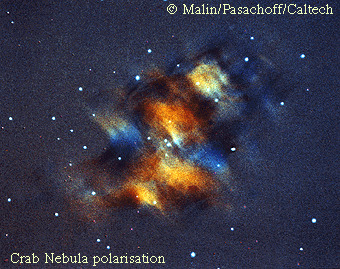
M1: Polarisation of the Crab - November 23rd, 1995.
"Although the stellar explosion that caused the Crab Nebula was seen over 900 years ago, the nebula itself still expands and shines. Much of the emitted light has been found to be polarised. Light waves with the same polarisation vibrate in the same plane. Light waves can be polarised by reflection from a surface, an effect familiar to sunglass wearing fishermen and skiers. Polarised light can also be emitted by regions that contain strong magnetic fields. Areas of different polarisation above are highlighted by different colours. Mapping the polarisation helps astronomers decipher which physical processes create the observed light."
33 notes
·
View notes
Text
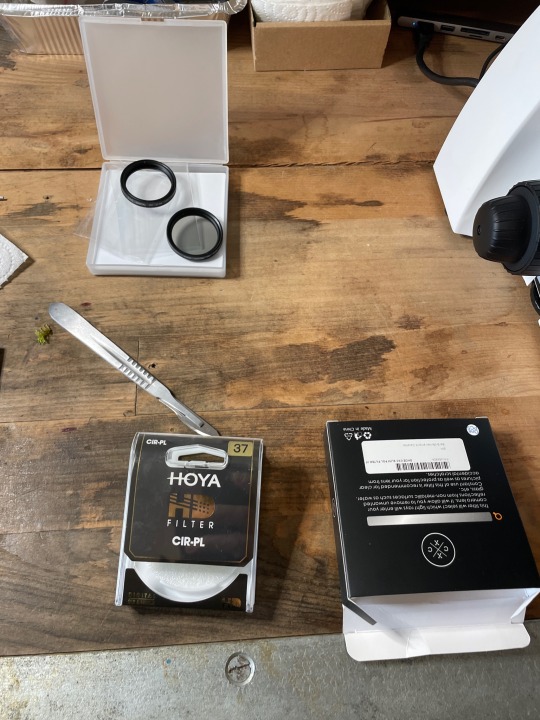


Try some things with lichens.




Polarisation

Lichen
#mycology#microscope#mushrooms#pilze#wild fungi#fungi#pilz#mushrooms switzerland#pilzesuchen#mushrooms of switzerland#ascomycota#lichen#bresser#bresser microscope#flechten#pilze und flechten#polarisation#mikroskop#pol filter#cristal
54 notes
·
View notes
Text
Interfaith Institutions Must Fulfill Their Role Regarding Gaza
“A joint interfaith appeal for a ceasefire, calling for an end to all civilian attacks, including the daily atrocities in Gaza, could send a potent message, uniting Muslims, Jews, and Christians”
Aga Syed Muntazir Mehdi*
The conflict in Gaza, which lasted six months, was marked by intense and widespread bombardment. This relentless assault has resulted in the deaths of over 30,000 individuals,…

View On WordPress
#Children Martyred#Chiristians#Gaza Conflict#Gazans#Israel#Jews#Killing of Palestinians#Muslims#Polarisation#women
2 notes
·
View notes
Text
How to fight polarisation and avoid turning on each other while fighting against genocide and for human lives, rights and freedom
I’ve been hesitant to post about the current tragedies and horrendous crimes happening at this time partly because social media seems like a literal mine field at the moment and because I’m no expert - I’ve felt unsure whether I could contribute in a constructive way and I’ve been wary of making mistakes such as contributing to the spread of disinformation or formulating myself in a way that was unclear and would be misread.
I’ve chosen to instead reblog mainly resources of knowledge and ways to donate, contact representatives and in other ways help where you can, and to spent a great amount of time trying to educate myself further and to partake in conversations and demonstrations/protests happening outside of social media.
But the situation is on my mind around the clock and has been during this whole time. I cry and grieve for all the Palestinians in Gaza who are living in constant fear of losing their own life, in hunger, thirst and isolation from the rest of the world making them unable to share what is happening; who are seeing their loved ones die and their homes and mosques and infrastructure and neighbourhoods destroyed. I rage at the Israeli government’s obvious dehumanisation and breach of human rights and the murders of innocent people that they are responsible for. And I rage at the western leaders’ support of this genocide both in rhetoric and action. And I have raged for the same support and indifference during the illegal Israeli occupations, their treatment of Palestinians, and creation and upholding of apartheid conditions in both Gaza and the West Bank for so many years. And I see the images of the civilian Israelis that were murdered, children in front of their parents and parents in front of their children by the hands of Hamas and I cry and grieve for them and their loved ones, too. My thoughts constantly go out to everybody who is in some way more closely involved in this than I am, Palestinians, Israelis, Muslims and Jews.
And that is what this post is about, in some ways. The fact that we can and should cry and grieve and rage for all these tragedies and crimes against humanity, that we should remember that multiple facts and stances and empathy for multiple people can and should be able to co-exist. That we should remember who to make enemies of, who has blood on their hands and who we should be giving the benefit of the doubt or whose stances we owe the gravity of the situation to try and understand better, even if we still disagree after that attempt. Not because I believe that the grievances, the horror, the rage, the crimes or the fight for freedom and lives should be pushed aside or negligized. But because I genuinely believe that polarisation and disinformation and dehumanisation of the people that we disagree with, does not serve the cause of either freedom, rights or the sparing of innocent lives - I believe that there is a risk of it contributing to the opposite.
Like I said, I’m not an expert on the history of Palestine and Israel and although I do my best I can’t be sure that me posting my thoughts are contributing or that some people won’t misunderstand my intentions or my opinions. Besides breaching my social media semi silence to share my empathy with everybody involved, I want to share what I believe would help us fight the right enemy while also fighting polarisation and disinformation and prevent us from turning on each other. In sharing my thoughts I am drawing from my previous knowledge and from a place of support for the Palestinian fight for freedom and against the oppression and occupation by Israel for as long as can remember, as well as my studies in philosophy, identity politics, social epistemology, disinformation and polarisation, as well as information about the situation and history of it that I’ve recently read from sources that I believe are reliable as well as accounts of both Jewish and Palestinian people, in the attempt to educate myself further prompted by the current situation.
I know that I’ll probably formulate something in a less clear way than intended and that misunderstandings can happen and that I can hold wrong beliefs. I am open to any well-meaning corrections. And I also want to make clear that I am not trying to call anybody out, or believe that I know better than anyone. I completely understand why people are outraged because I share the same outrage. This just happens to be something that I have both studied and that is on my mind a lot right now, and that I wanted to share in order to use what I know and think, hopefully for some good.
What I believe we should be doing to avoid turning on each other in our fight against the crimes happening:
Educating ourselves. I know that is not accessible for everybody but if you can, try to find sources that are as reliable as possible, and consult those. No media article is completely objective, so try to read from different sources, that argue for different views, also those that you initially or instinctively deem as incompatible with your own views. This could be books, newspapers and probably specific radio and tv programs and debates depending on what is available where you are.
This includes reading up on the history of the area dating as far back as possible and with as much detail as possible. A lot of us either are against or highly problematise the establishing of the state of Israel and/or the way it happened and the role that the empiricist west played in it. The area also has a history before the establishment of the state of Israel. A history that includes Jews migrating to the area in a slow stream (some accounts state this as returning to the area) way way before the 19th century due to ethnic cleansing and displacement from all around the world including the Middle East. The more recent history also includes attempts at peace treaties and two-state solutions that failed, personal accounts of Palestinians and Israelis pendling between Gaza, the West Bank and Israel and having had friends and colleagues on both sides; but also personal accounts of the humiliation and apartheid in the Palestinian areas occupied by Israel. It includes illegal occupations, humiliation and mistreatment of the Palestinians by the Israeli government and military; It includes attacks on civilian Israelis by Hamas; Poverty, joblessness and despair in Gaza by the hands of Israel and the Israeli control of the Gaza borders; Hamas oppressing the Palestinian people of Gaza and ruling undemocatically and stating openly that they want to eradicate all Jews from the entire Middle East. It includes both Israelis living in Israel and Jews around the world protesting publicly against the current racist and right-wing extremist Israeli government and their current crimes against the people of Gaza as well of the history of oppression against the people of Palestine.
The history of statehood or lack thereof, human rights breaches, structural racism antisemitism, colonisation, apartheid and displacement of entire religious and ethnic groups and the political history of Palestine, Israel and the West is extremely detailed and go far back. Read up on that if you can, not in order to change your views necessarily but in order to nuance and strengthen them.
Being source critical, watching our language and being ware of disinformation. Remember that there is not only a war, a genocide and a fight for freedom happening, there is also an information war happening and there are a lot of people in high places who want us to share disinformation and for people to polarise, take up unnuanced or extreme viewpoints and to turn on each other. Again - I’m not saying that this should change your view that there is a genocide happening or lessen your outrage. But be aware that there are some details that we just cannot be entirely certain of, and that should be part of our frustration and part of what we’re critical about. And I believe that we should try to help each other find out what might be the truth by having conversations, sharing our thoughts and correcting each other in a non-aggressive language, rather than fighting each other over what some believe to be true and some not.
Having different beliefs about what is true is not necessarily an expression of diverging general beliefs or stances but of all of us sharing the struggle of sorting through the insane amount of information floating around on the internet and coming from high places.
Sharing resources that provide knowledge about the situation and about how to help, take political action and donate. This includes donation sites, how to contact your government/representatives, petitions, book and news source recommendations, information about protests/demonstrations that are happening.
Trying to understand/imagine where the people we disagree with are coming from. Even if you support a one-state outcome where Israel seizes to exist or you believe that the state should have never been established, you can acknowledge that those who believe in a two-state solution feel that the Jews who have historically lived in the area should be able to continue doing so without risk of religious discrimination, and why some jewish people express the need and wish to have a place where they are not a minority and get to live and share their religion, holidays etc. with each other, which I think is something a lot of us are taking for granted. Acknowledging this does not mean you have to change your view on whether the state of Israel should stay, or diminish your criticism or outrage at the way the state was established or the crimes against Palestinians that the state have continually committed and the genocide that they are committing right now.
Even though your support for Palestine is valid, important and well founded and the public expression of it right after the Hamas attack on Israeli civilians on the 7th was a counter-response to the western leader’s unambiguous support for Israel and their failure to condemn the crimes of Israel’s occupation and apartheid for years, you can try to acknowledge why this might to some Jewish people who were shocked and grieving and had lost loved ones might have been misunderstood as indifference toward the Jewish lives lost. If you think that their response to this was also an expression of indifference toward the horrible crimes against Palestinians and the Palestine lives lost, you might have misunderstood their intentions as much as they misunderstood yours. You should still feel right to be disappointed, angry and criticise these responses.
Even if you condemn the actions of Hamas on the 7th and were shocked and angry, and even if you believe in an Israeli state (along with a free Palestine), you can acknowledge the oppression, apartheid, humiliations and crimes that have laid the foundation of the well founded anger against Israel that help groups like Hamas flourish. That can explain why some Palestinians emphasise with Hamas’ project even if it doesn’t defend the actions of Hamas against Israeli civilians. Also make sure to acknowledge that the government of Israel did commit these crimes, are committing them right now, and have done so for many years, and is also is targeting civilians and that the western leaders’ unambiguous support of Israel is extremely dangerous and problematic and that these are the reasons so many are demonstrating in support of Palestine right now, not because they are antisemitic.
There is a saying within philosophical practice, that when evaluating someone’s argument, you should try to interpret the authors’ stance/belief/argument in the best possible way in terms of validity before you start countering it. This doesn’t mean you shouldn’t counter it or won’t end up disagreeing. It just means you should be countering your best possible interpretation of the opponents statement instead of the worst. This of course doesn’t exclude criticising people for the language they are using or making them aware of how it comes across as problematic. This practice will also strengthen your own argument as well as diminish the risk of polarisation and misunderstandings and help people learn, as you won’t be tearing down a general belief that the opponent doesn’t actually hold, but you’ll be countering a belief that they do hold and that might be wrong and thus should be countered.
Remembering that there is a human behind the screen. I don’t just mean ‘remember that there is a human being, and that human being is evil because of a post/statement they made’.
There is literally a human who is human and so was raised in some kind of narrative about something that is extremely provoking of intense emotional responses. This person is statistically unlikely to be a psychopath, so in all likelihood they are also someone who grieves for all human lives lost, who is against oppression, racism and antisemitism; who believes in human rights and wants to save children in danger of getting killed and traumatised; who believes in justice the same way that you do. But they might not be great with words, they might be very emotional because they have personal ties to the situation, they might have trouble sorting through what is true or false, who is the victim and who is the perpetrator.
I once saw a documentary about people believing in conspiracy theories. There was a couple, they seemed like really compassionate people. The kind of people who want to help anyone in need to the best of their abilities. They fully believed the misinformation about the US Democratic Party being infiltrated with pedophile circles in which people hurt kids. And because of that they had quit their jobs to spend all their time fighting for those kids.
Personally I think that this conspiracy is a false belief that should be very easy to counter-argue and not fall for, and I can’t understand how anyone could hold such beliefs. Further I think that such beliefs are dangerous as they serve deeply oppressive forces in society, against the kinds of people that I love and fight for. But I could still acknowledge the human compassion, empathy and self sacrifice that motivated this couple, and had I had the chance to talk to them, I would try to help them understand that their beliefs about the facts were wrong, rather than tell them that they were evil or inhumane - because I don’t believe that they were.
The history, facts and politics surrounding the current situation is so detailed and complex and filled to the rim with emotions and propaganda that differing and wrong narratives are much much easier to believe than that the US government are infiltrated with pedophile circles. Having false or wrong beliefs does not make people into non-compassionate, evil people who do not do their best to fight for the same basic principles as you do.
What I believe we should not be doing:
Confusing criticism of the establishment of the state of Israel, criticism of its government and their actions (crimes), criticism of the unambiguous support of it from the western leaders or the fight for Palestinian freedom, independence and statehood with antisemitism. This also goes for the stance that there should be a one-state solution where the entire area should go under the state of Palestine or that the state of Israel should have never been established. That can be a valid stance as long as it doesn’t include the displacement or discrimination of the Jewish population in the area.
Confusing criticism of Hamas, of Hamas’ undemocratic rule over Gaza and criticism of their project of eliminating the Jewish population in the Middle East with racism, islamophobia or support of the Israeli government, their crimes, apartheid, illegal occupations, colonisation, or oppression. It is possible to be critical of both.
Confusing the government of Israel with the Israeli civilian population or with Jewish people in general.
Confusing Hamas or their actions with the civilian people of Palestine or Palestinians in general or with the religion of Islam or muslim people.
Mixing things up in general or try to fight facts with facts. It can be true that the state of Israel is an oppressing power that is committing genocide and war crimes while it being true that Hamas is an extremist and antisemitic group that targets civilians and also commits war crimes. It can be true that both Jews and Muslims around the world have valid reasons for being afraid for themselves and their loved ones and for facing discrimination and hate crimes, and for that fear having risen during these times.
I once read an expert in polarisation stating that “the real danger of the situation is that we no longer disagree on opinion but on facts”. In a way I disagree with that. What I believe is dangerous is when the disagreement about facts causes the disagreeing parts to have wrong impressions about the opponents general beliefs and humanity and empathy.
Of course we will disagree about facts. It is extremely difficult to sort through all the information floating around the internet, without the means and education to do so. And by this I don’t mean wits or intelligence or a bachelors degree in information studies or polarisation. Even intelligent people with high educations can and probably will struggle sorting though information and tracing and evaluating the sources of it and it’s validity. And I know that a lot of us right now are for valid and obvious reasons having a hard time trusting the sources that we normally have at least some trust in, because our governments are being so one sided and supportive of a criminal, oppressive and genocidal government. And because well established and deemed objective news sites and news papers are firing Israel critics or labelling them as such as a sort of ‘warning of a possible lack of validity’ (google for example the Guardian’s firing of the satirical artist Steve Bell). Not being able to feel like we can fully trust these institutions make it even more difficult to seek out information that we know for sure that we can trust a 100% so it is likely that we will believe different things stated as facts. That doesn’t mean that we do not share cause or general, basic beliefs.
If someone believes that Israel did bomb the Al-Ahli hospital, that doesn’t make them antisemitic or pro-Hamas.
And people believing that the explosion at the hospital occurred in the parking lot and was caused by a misfired and malfunctioning missile fired from within Gaza by Islamic Jihad does not make them pro-Israel, it doesn’t mean they don’t at the same time believe that Israel is committing genocide, or that they are any less supporting of the Palestinian fight for freedom or their lives against the Israeli government, and it doesn’t make them untrusting of accounts from the people of Gaza or blindly trusting of everything the Israeli or western governments are saying.
And not knowing what to believe doesn’t make people indifferent, it makes them understandably sceptic and frustrated about what information to believe and what not to believe. This leads me to:
Confusing social media silence with indifference and inaction. There are people who find it so difficult to sort though information that they are afraid of posting/reposting something that they don’t feel sure of and that might only contribute to spread of disinformation and polarisation that they choose not to engage a lot on social media. This does not mean that they are indifferent or doesn’t take action. The same people might spend a lot of their time educating themselves and changing their own previously held wrong views, they might be donating, having difficult conversations with friends and family, going to protests, signing petitions or in other ways pushing their government to change their actions and rhetoric and using their vote with the people of Palestine in mind. If people are choosing to refrain from the chaos that is social media, either to protect themselves so that they can fight better outside of it or to not contribute to polarisation and the spread of disinformation, that might be for the best and it shouldn’t be beaten down upon in my opinion.
Confusing nuance with neutrality. Nuance is not neutrality. You can recognise that the history, facts, accounts, and details are varying and makes a complicated picture and thus take a nuanced stance or at least acknowledge that there is nuance to everything, the current situation included. Nuance is not downplaying the evil and atrocities happening. Nuance is not the same as not holding rage against the Israeli government. Nuance doesn’t mean that that rage is or should be any less all-consuming. Nuance is not defending or accepting the crimes and genocide against the people of Palestine or the killings of Israeli civilians on the 7th and on other occasions. Nuance is not indifference. It is not neutrality. Nuance is detrimental because it tries to protect the possibility of the co-existence of several facts at once, in order to seek out the core of the problems and thus the solution. Because it tries to hold on to compassion for multiple people at once. Because it prevents us from fighting the people who we should be working together with because we share the same goals, general beliefs and projects.
Neutrality is the opposite of outrage and condemnation, and of grief, and of despair. Nuance can exist alongside all four in my opinion.
Accusing people who are silent on social media, express nuanced thoughts or that doesn’t use the correct language, formulates themselves clumsily or have beliefs that you disagree with of having blood on their hands or being pro-genocide. This is the people who have blood on their hands: the government of Israel, Hamas, the western governments not doing what they can to stop the genocide, the governments who are sending weapons and bombs that are meant to directly target civilians.
I know this is difficult when feeling outraged and hopeless, and also because there is some truth to it. The people who voted for the governments that do have blood on their hands, the people who spread and believe propaganda, the people not taking action and staying silent or being ‘neutral’ are in some indirect, ways (probably unknowingly and for most I believe certainly unintentionally) contributing to what we are seeing happening and what has been happening for years. But people living thousands of miles away and who are uneducated, have trouble believing the information that is true and not believing the information that is false, people who might be silent because they are facing their own crisis regarding life or death for themselves or their loved ones, or who are making mistakes in the way that they formulate themselves that lead to misunderstandings, does not have blood on their hands, they are not the ones killing children, and they are not supporters of genocide. We can be angry and frustrated at them, but saying that they have blood on their hands or are pro genocide is effectively silencing them even more because they become afraid of retribution and it only pours fuel on the dangerous fire that is polarisation, hate and dehumanisation of the people that we should be helping to learn and engage and gathering forces with to fight the real enemy.
4 notes
·
View notes
Quote
Every miserable fool who has nothing at all of which he can be proud, adopts as a last resource pride in the nation to which he belongs; he is ready and happy to defend all its faults and follies tooth and nail, thus reimbursing himself for his own inferiority.
Arthur Schopenhauer
#Arthur Schopenhauer#quote#nationalism#extremism#polarisation#politics#national#nationality#identity#group#group identity#pride#proud#empty#inferior#inferiority
4 notes
·
View notes
Text
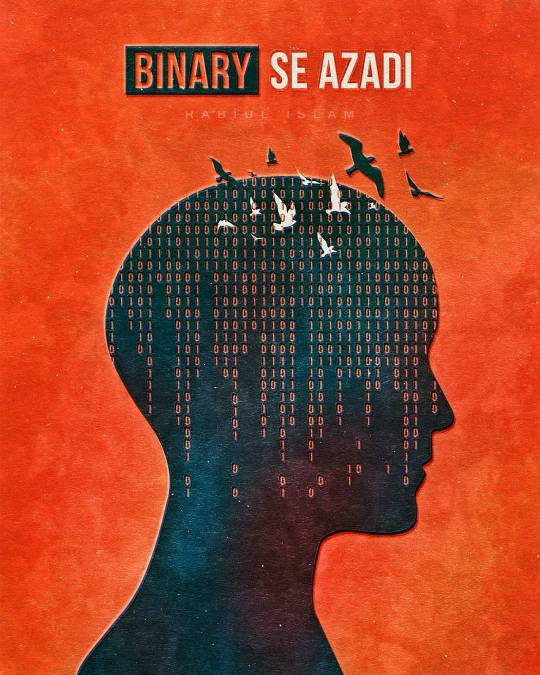
2 notes
·
View notes
Text

Severely battered face; violence as the new norm?
#art#artist#artists on tumblr#modern art#cartoon#cartoon art#concept#conceptual#concept art#conceptual art#polarization#polarisation
0 notes
Text
Algorithmes : ces formules qui polarisent
Ce n’est pas un mythe, les plateformes de médias sociaux utilisent des algorithmes pour personnaliser le contenu affiché à chaque utilisateur. Ceux-ci tiennent compte des préférences, des interactions passées et des habitudes de navigation de chacun. Officiellement, cette personnalisation vise à améliorer l'expérience utilisateur. Dans les faits, elle est la cause de la grande polarisation des idées dont nous sommes témoins partout sur la planète avec comme résultat une augmentation constante, en virtuel, mais aussi dans le réel, de haine et de violences.

Image: Canva
Le double tranchant d’internet
Selon Frank Valencia, membre de l'équipe-projet Inria COMETE au LIX de l’École polytechnique interviewé pour l'article Réseaux sociaux : la modélisation mathématique peut-elle contribuer à réduire la polarisation des opinions ? du journal Le Devoir, « Le rôle des réseaux sociaux est relativement paradoxal. D’un côté, le monde est plus interconnecté, nous avons un meilleur accès à l'information et aux différentes opinions », constate-t-il. « Mais, de l’autre, il ne faut pas oublier le fait qu’ils peuvent façonner les opinions des utilisateurs à une échelle sans précédent, donnant lieu à une large polarisation ».[1]
En effet, les réseaux sociaux, devenus omniprésents dans notre quotidien, donnent accès à une quantité infinie de données sur tous les sujets imaginables et nous permettent d’en partager tout autant. Mais les algorithmes, en proposant aux internautes des perspectives toujours similaires aux leurs, limitent leur exposition à des points de vue divergents et renforcissent ainsi des croyances préexistantes qui mènent à la polarisation des idées.
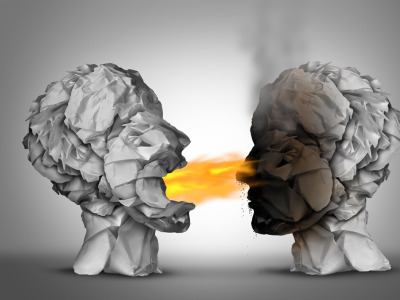
Image: Canva
Comprendre le fonctionnement des algorithmes : une arme utile
De son côté, l’ingénieur français spécialisé en intelligence artificielle Guillaume Chaslot[2] affirme que « l’obsession des plateformes à garder captifs les internautes a eu pour conséquence de monter les citoyens les uns contre les autres ». Et M. Chaslot sait de quoi il parle, puisque jusqu’en 2013, son travail consistait à créer les algorithmes de YouTube!
L’ingénieur milite aujourd’hui pour la transparence des algorithmes. Il rappelle qu’il est essentiel de connaître les mécanismes qui choisissent ce que nous voyons en ligne et selon lui, « La bonne marche de notre démocratie en dépendrait ».
Les risques de la viralité
Les réseaux sociaux sont le terrain de prédilection de la viralité, puisque le contenu peut se propager rapidement à travers le monde. Cependant, cette viralité est souvent sélective, favorisant les contenus sensationnels ou extrêmes. Les informations polarisantes, qu'elles soient politiques, sociales ou culturelles, ont tendance à générer davantage d'engagements. Une enquête du New York Times a d’ailleurs conclu que l’algorithme de recommandation de YouTube est susceptible de suggérer du contenu toujours plus extrême. Donnée plutôt inquiétante !
Une réflexion s'impose!
Les réseaux sociaux jouent un rôle essentiel dans la formation des opinions et la dynamique des débats. Cependant, la polarisation croissante qui émerge de ces plateformes pose des défis sérieux à la cohésion sociale et à la compréhension mutuelle. Il est impératif d'en prendre conscience et de favoriser des algorithmes qui génèreront des interactions plus diversifiées et constructives pour atténuer les clivages qui menacent la stabilité de nos sociétés.
Sources:
[1] https://www.inria.fr/fr/reseaux-sociaux-biais-cognitifs-modelisation-mathematique
[2] https://www.ledevoir.com/societe/600191/serie-tous-polarises-ces-algorithmes-qui-nous-divisent
1 note
·
View note
Text
Polarised Learning
Simpkin
By Quentin Blake
Jonathan Cape, 1993
We live in polarised and polarising times. Or so many would have us believe. Donald Trump is a beacon of light and part of the forces of darkness. The world is divided into liberal democracies and authoritarian regimes, people who like Taylor Swift and those that don’t. My father-in-law hates cheese. I love it. There is no common ground.
Despite…
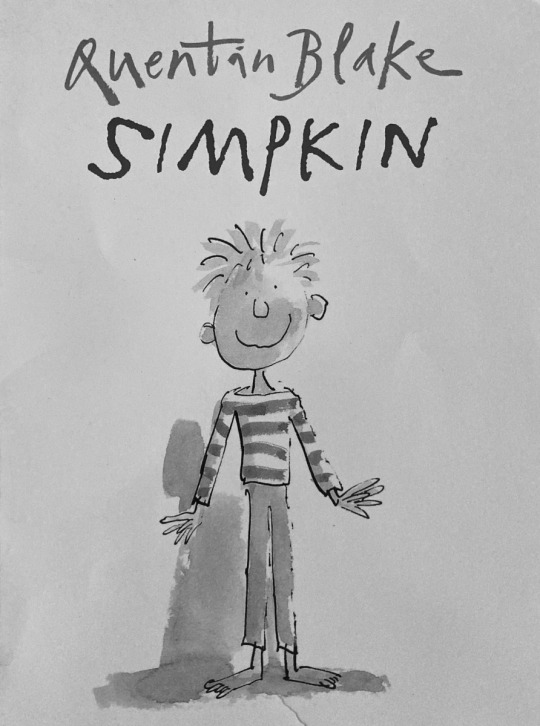
View On WordPress
#Book Review#Cheese#Children#Children&039;s Literature#Donald Trump#Jonathan Cape#Literature#Picture Books#Polarisation#Quentin Blake#Review#Taylor Swift
0 notes
Text
Jammu Parliamentary Constituency: Delimitation Will Impact The Outcome
“Even as the territorial contours of the new constituency exclude the Pir Panjal, historical patterns are instructive.”
Latief U Zaman Dev*
Before March 14, 2022, the Jammu Parliamentary Constituency (JPC) comprised Jammu, Samba, Poonch and Rajouri Districts.
Since its creation in 1962, eight winners were from Dogra community. A Gujjar from Rajouri enjoyed a truncated term from 2002 to 2004 after…
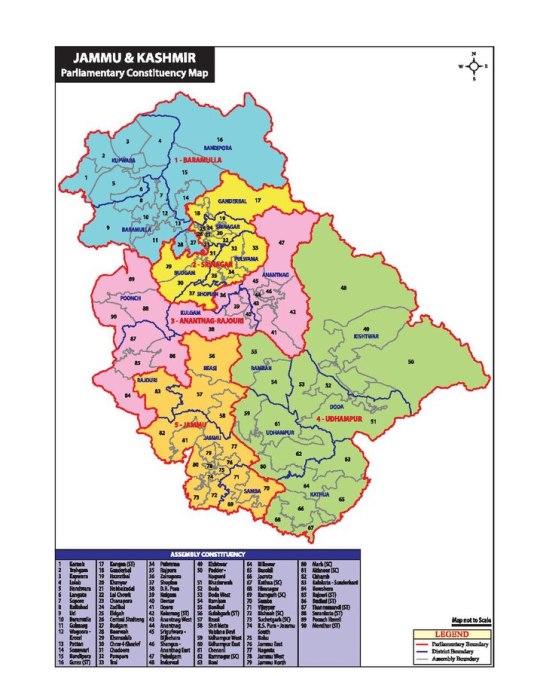
View On WordPress
#Bakerwal#BJP#Changed Boundary#Congress#Development#Dogra#Gujjar#INC#Jammu#Jammu Parliamentary Constituency#Jan Sangh#Janata Party#Kashmiri#Migrant Voters#National Conference#NC#Pahari#Pir Panjal#Polarisation#Poonch#Rajouri#Reasi#Samba
0 notes
Text
#social capital#polarisation#He studied philosophy at Yale#where#he told me#“the zeitgeist was very much politically progressive#anti-Republican#anti-Reagan. And so I was very moralistic#very self-righteous. I think I was angry throughout the ’80s#or at least in a sort of a shallow#political way. And so I think I wasn’t a very interesting person intellectually or morally throughout the ’80s and throughout my young-adul#i feel this lol
0 notes
Text
The 10 short steps to trans extermination (America's at stage 7)
youtube
"It sounds like 'oh it couldn't possibly happen', but it always feels like that until it happens. I don't think anyone who has been subjected to a genocide has been like 'oh yeah, this is definitely headed this way' ... Be prepared, be aware, move with caution."
#trans genocide#dehumanisation#polarisation#extermination#genocide#holocaust#republicans#fascists#fascism#far right#conservatives#usa#america#transgender#non-binary#transphobia#trans rights#trans safety#trans#lgbt
1 note
·
View note
Text

I have a linguistics degree so I can also claim insanely wrong things. French is just badly pronounced Latvian.
#langblr#Lingblr#Linguistics#I know the headline and title is probably just supposed to be polarising click bait#But jesus christ is it annoying
4K notes
·
View notes
Text
Séance #13 - Réseaux sociaux : plus polarisants que rassembleurs?
Bien que les médias sociaux aient leurs avantages, après tout ils nous permettent de rester en contact avec des gens peu importe la distance, ils présentent néanmoins bien des inconvénients, dont certains sont plus inquiétants que d’autres. Parmi les plus préoccupants se trouve le phénomène de la polarisation en ligne, particulièrement sur les réseaux sociaux. Mais pourquoi ces derniers favorisent-ils autant la division des opinions des utilisateurs? L’article suivant du Devoir offre quelques pistes de réflexion à cette interrogation.
Principalement, cette polarisation peut être attribuée au fonctionnement même des réseaux sociaux. En effet, leur modèle d’affaires, qui consiste à attirer le financement de publicitaires par un trafic élevé sur leur plateforme, est au cœur même du problème : les compagnies numériques n’ont pas intérêt à contrôler ces contenus et propos polarisés, puisqu’ils créent des conflits, et ainsi génèrent un fort trafic autour des publications (Trudel, 2021, paragr. 3).
Aussi, un autre phénomène à blâmer pour la polarisation des échanges en ligne est celui de la chambre d’écho. Effectivement, l’algorithme à la base des réseaux sociaux vise à récolter les données personnelles de chaque utilisateur afin de lui offrir un fil d’actualité le plus personnalisé possible. Or, ce même algorithme peut être la source du problème de la polarisation, car en cherchant à présenter à l’utilisateur des contenus similaires à ceux avec lesquels il interagit normalement, il filtre les contenus auxquels sera exposé l’utilisateur, ce qui tend à cristalliser les opinions et les croyances, même si celles-ci sont fausses ou néfastes (Office québécois de la langue française, 2022, paragr. 1).
Mais comment réduire cette tendance à la polarisation? Car malgré toutes les pistes de solutions offertes, je demeure convaincue que la polarisation ne peut être évitée. En effet, en considérant le phénomène des trolls ou celui de l’anonymat sur les réseaux sociaux, je crois qu’il est utopique de penser que tous les utilisateurs prendraient le temps de s’informer des multiples points de vue d’un débat avant de commenter, comme il a été suggéré. Le but ultime des trolls étant de provoquer des réactions dans les commentaires de publications et l’anonymat ayant la fâcheuse habitude de donner l’impression aux utilisateurs qu’ils peuvent tenir n’importe quels propos sans conséquences. Combinez cela au manque de volonté des entreprises numériques propriétaires des réseaux sociaux de contrôler cette problématique, car après tout ils en retirent des profits, mon avis est donc que la polarisation sur les réseaux sociaux est là pour rester.
.
Références
Office québécois de la langue française. (2022). Grand dictionnaire terminologique : chambre d’écho. https://vitrinelinguistique.oqlf.gouv.qc.ca/fiche-gdt/fiche/26560265/chambre-decho#:~:text=D%C3%A9finition,leurs%20id%C3%A9es%20et%20leurs%20croyances.
Trudel, P. (2021, 4 mai). La polarisation en ligne et ses lois. Le Devoir. https://www.ledevoir.com/opinion/chroniques/600005/la-polarisation-en-ligne-et-ses-lois
0 notes
Text
Bbw thot shaking phat ass
Teens POV Blowjob and Hard Doggy Sex with Anal Toy
Givin backshot to my bitch
MILFTRIP MILF Bartender Kenzie Taylor Mixes Pussy Juice With Big Dick
Foreign Blowjob Queen Learns
casino leonistico queretaro eventos 2013
Real busty latina stepdaughter facial
tranny angel masturbates with her monster cock hot shemale sex
Juicy ebony bbw playing with her pussy
Gay israeli soldiers fuck on beach and navy hunk men nude movie first
#septicart#bozzetto#Agee#Hakon#peelcrow#tegumentum#pulmonectomy#designative#kiddos#shingles#sea-robin#haewon#Daggna#unbigamous#demonizing#Granta#polarisation#idiophanism#anorganism#atrocity's
0 notes